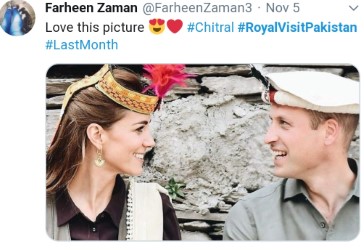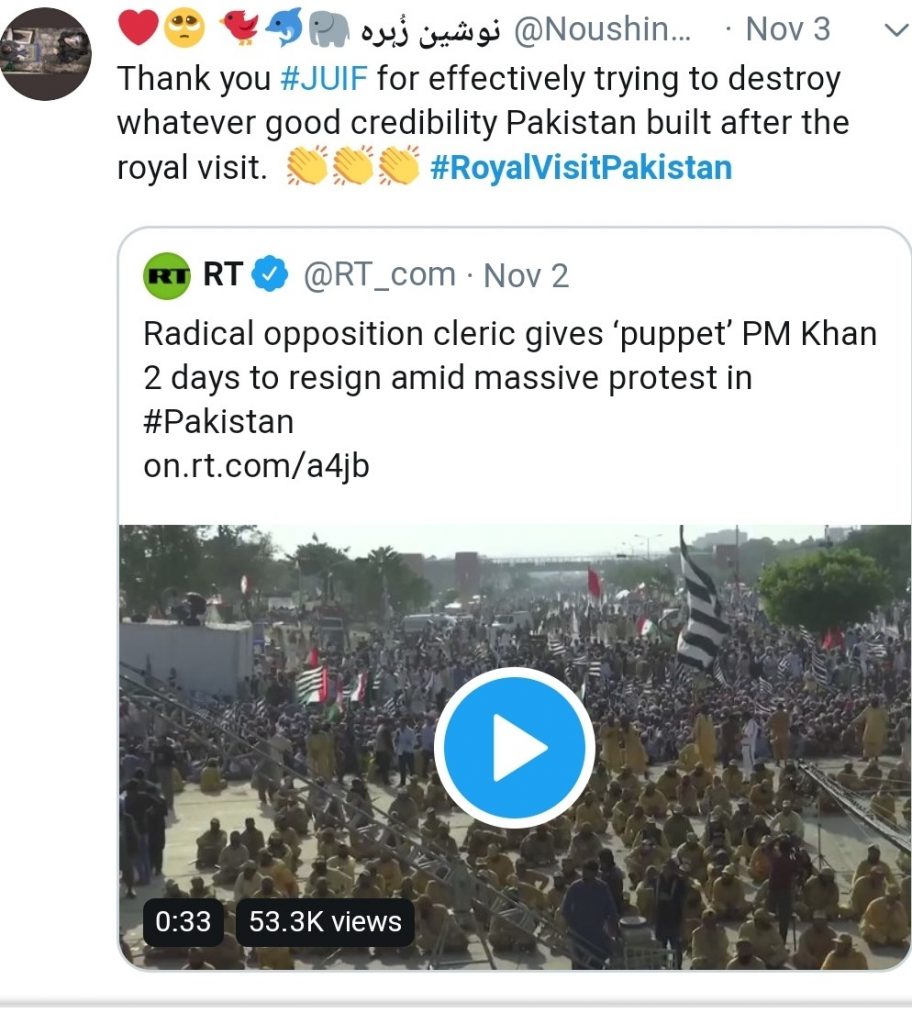Having recently had the Duke and Duchess of Sussex complete a trip to Southern Africa, another Royal tour was underway, this time attended by the Duke and Duchess of Cambridge in Pakistan. This 5 day tour consisted of the Royal couple visiting a myriad of notable locations within Pakistan, from the capital city of Islamabad to the infamous Hindu Kush mountain range. The visit was dubbed the most complex tour undertaken by the royals till date and has since been overshadowed by underlying controversy regarding its purpose.
In the above video, it was mentioned how the Royals used their position and name to bring awareness to location specific issues in the countries they were touring – such as climate change. The origins of the ‘Royal Commonwealth Tour’ can be seen to further reinforce this message.
It can be seen from this excerpt that the lengthy history of Royal tours abroad is essentially driven by the need to ‘help’ these nations as “England had saved herself by her exertions and would save Europe by her example.” This perspective can be construed as a somewhat patronising approach to foreign affairs and upholding international links – especially since the majority of the commonwealth nations are officially independent republics. An extension of what many see as British imperial influence, has dampened the impact of the royal tours.
This self-imposed almost ‘holier than thou’ attitude that is at the crux of these global expeditions, can also be seen to have no tangible effect in improving the awareness regarding the issues the Royals are ‘advocating’. The Queen herself has visited over 28 commonwealth countries including Ghana, St Lucia, Trinidad & Tobago and Canada. Despite this however, there has been no public enhancement in the awareness surrounding common health issues that are endemic in these Sub-Saharan countries such as pulmonary tuberculosis, HIV and Cholera. All in all, these international tours are futile in carrying out their purpose and effectively recognising and addressing global issues. Conversely, they can be seen to perpetuate an outdated colonial condescension and are inherently unjustified as foreign interference by many is seen as unnecessary in a time where countries are independent and capable of promotiong their own agenda on various issues.
However, the reaction to the recent Royal tour in Pakistan does not mirror these critical sentiments.


For the many Pakistanis who had observed the tour closely on social media after every press release, there was an overall air of pride associated with the trip. As can be seen by the above reaction on social media, many perceived the expedition as a way of promoting Pakistan as a country in a general sense and destroying the violent stigma associated with the nation. The Royals were seen to explore a wider range of areas which further strengthened Pakistan’s emerging multicultural and dynamic reputation. A recent governmental emphasis on increasing tourism coupled with the royal visit alongside other foreign visits from social media influencers such a Rosie Gabrielle, has reduced the concern regarding colonial righteousness, as identified by many in the west.
This type of positive coverage hasn’t been seen in Pakistan since 1996, a renowned period of time in which Princess Diana visited the country to raise funds for Shaukhat Khanam Cancer Hospital – the charitable endeavour of her good friend Imran Khan (now the current Pakistani Prime Minister). The kind sentiments and intentions of this royal visit and the favourable opinion it garnered from the people can be seen to extend to the present day as many have seen the recent royal tour as positive promotion.
“The last time I met him he was a boy, along with Prince Harry, and they came with their mother to my ex-mother-in-law’s house…”
Imran Khan, Prime Minister of Pakistan
References to Princess Diana’s influence and popularity throughout the visit also made for nostalgic reading as the Prime Minister reflected upon the Princess’ intense popularity even in the most rural and isolated of areas in Pakistan such as ‘Mian Wali‘. Again this shows how an amiable outlook on Royal relations is rooted in the cultural fabric of the nation as a result of the iconic 1996 visit, and is now somewhat intertwined politically as the former cricketer emerged to become Prime Minister of the country.
The question of whether Royal tours are a projection of innate colonial values, or if they are simply a gesture of global cooperation, are two contending viewpoints that ultimately depend on who is discussing them. However, it is important to note that there has been a shift in the meaning and context of such visits from when the Queen was active, to the current day, where it can be argued that a new generation of Royal figures have set the precedent for establishing foreign relations.


